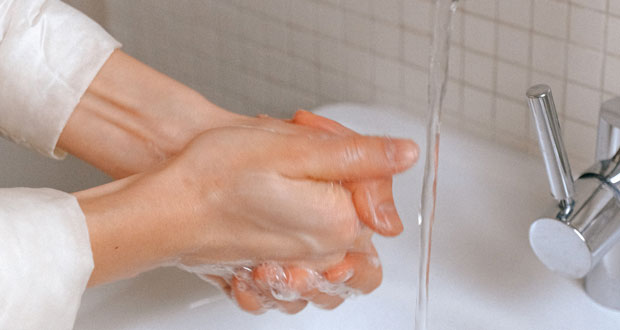By Dr. Lisa Ackerley, Director of Medical and Scientific Engagement, Hygiene, at Dettol Pro Solutions
As we mark two years since the UK’s first nationwide lockdown, a greater understanding of hygiene and the role we collectively play in enhancing hygiene habits to reduce the spread of germs has emerged. As we return to daily commutes, hot desking, shared kitchens, sports games, concerts, hotel stays, and travel -both across the country and beyond our borders – how much have our hygiene habits really changed?
Social impact, change and the responsibility of businesses when it comes to hygiene
There’s no denying that hygiene habits have shifted and venturing out into the community looks different. Whilst the Prime Minister set out the Government’s plans to live with and manage the virus – which includes measures such as removing the ‘NHS COVID Pass’ from 1 April1 – it seems like that Brits are still concerned about the risk of coronavirus when the world bounces back from the pandemic. According to new research from Ipsos MORI, 65 per cent are ‘just as concerned’ now about the ‘risks posed’ by the pandemic to both themselves and the country as a whole as they were towards the end of 20212. In the UK, nearly 30 per cent of people are either ‘very concerned’ or ‘extremely concerned’ about the pandemic3.
Echoing these concerns from the public, around 85 per cent of business leaders believe that having the right products and processes for cleaning and disinfection is one of their ‘most important job responsibilities’4.
As lockdowns and outbreaks have eased, and people have begun to venture back out into the community, the onus has moved from individuals protecting themselves at home, to businesses protecting people in the community. People and businesses have to embrace hygiene protocols and take extra hygiene precautions to help prevent the spread of bacteria and viruses. Handwashing remains one of the most important hygiene measures adopted from the public with 38 per cent of people agreeing, following getting vaccinated and mask-wearing with 74.5 per cent and 43 per cent respectively5.
While business confidence in the UK decreased for a second-quarter running, receding to average levels not seen since 20146, it’s clear that businesses are preparing to live with the pandemic. It’s imperative that these newly established societal norms and hygiene expectations are maintained.
Hand hygiene and changing habits
According to Reckitt’s research in numerous markets from June 2021, 56 per cent of UK people said that they washed or sanitised their hands ‘more frequently’ compared to a year ago. Yet one in three (36 per cent) said the frequency of handwashing or sanitising remained the same with eight per cent declaring they were doing it less7. What’s more, between October 2020 and October 2021, one in six were ‘unable to recall’ how often they washed their hands.
With 72 per cent of people intending to follow the same cleaning and disinfection behaviours they adopted during the pandemic8, overall heightened awareness of hand hygiene among staff and customers should be something businesses should look to not just sustain, but actively encourage. This can be done with signage to remind people to sanitise or wash hands with soap for at least 20 seconds at crucial times such as after using the bathroom, upon arrival in a shared space, or before eating.
Targeted hygiene: Research and rigour
The silver lining that this research points to is the understanding of the need to take a targeted approach when it comes to hygiene. Rooted in research and rigour, targeted hygiene refers to the practice of regularly cleaning and disinfecting high-traffic and high-touch surfaces to prevent the spread of germs. Based around individual business need and efficacy, targeted hygiene allows businesses to clean smarter, not just harder. Implementing a targeted approach to hygiene intervention can be an effective solution in helping to keep consumer-facing spaces hygienically clean. A bespoke programme of cleaning which focuses on high-traffic areas – and is backed by science – is far more impactful than carrying out a deep clean once a day.
1 GOV.UK. 2022. Prime Minister sets out plan for living with COVID. [online] Available at: <https://www.gov.uk/government/news/prime-minister-sets-out-plan-for-living-with-covid> [Accessed 25 February 2022].
2 Ipsos MORI Coronavirus polling, UK January 2022, n=1016
3 Global WebIndex, UK February 20022, n=14,000
4 Reckitt survey, US March 2021 via AskSuzy, n=500
5 Global WebIndex, UK February 20022, n=14,000
6 ICAEW’s Business Confidence Monitor, UK February 2022, n=1000
7 Winter Hygiene Habits, Reckitt, AUS 2021, n=1034
8 Reckitt Toluna Tracker, Wave 16 (6/7-6-13)





